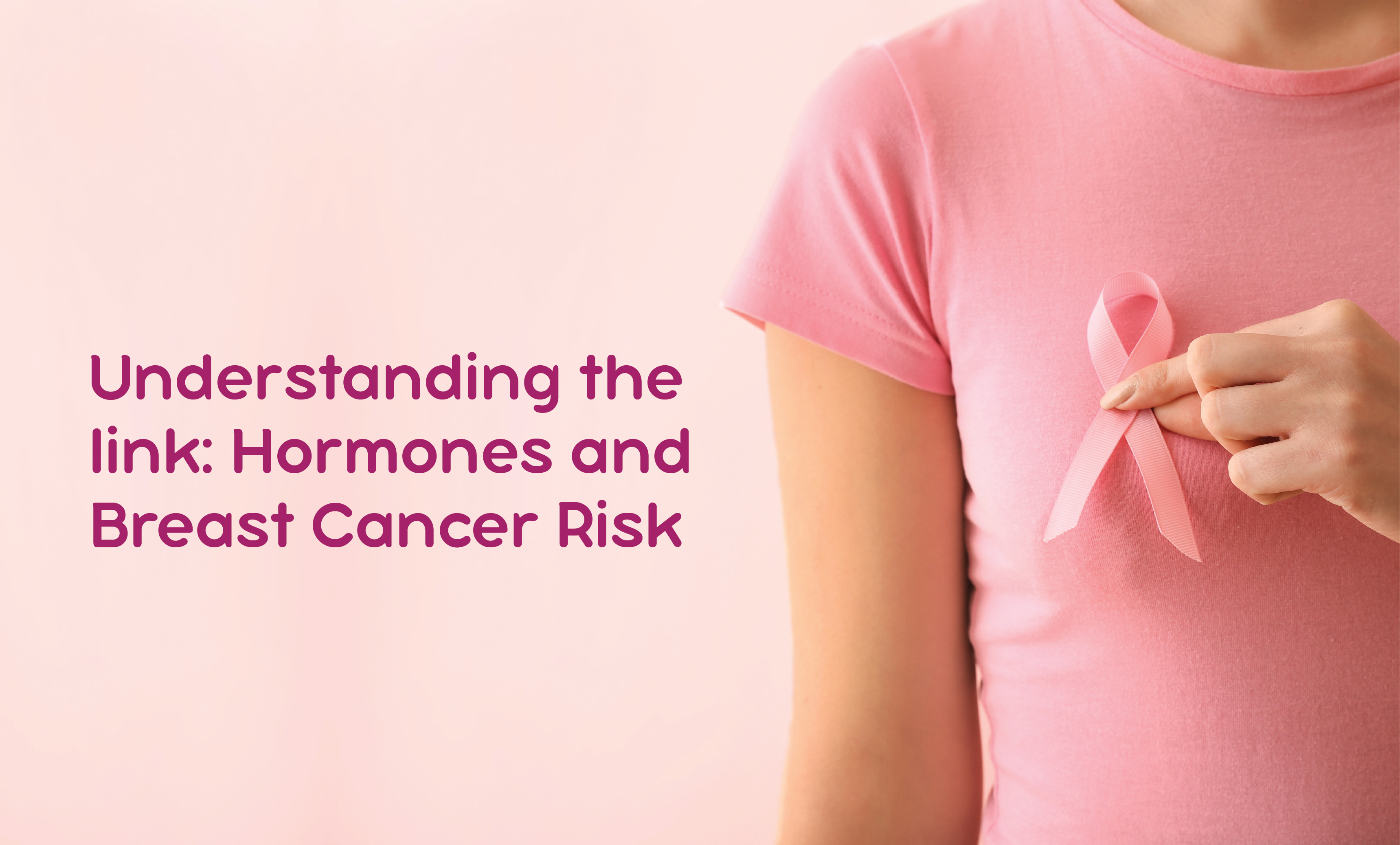
Breast cancer remains a major health challenge for women worldwide, and researchers are continually striving to unravel the complex factors involved in causing it to develop. Among these factors, hormones have been identified as key players with an impact on breast cancer risk and progression. In this article, we take a closer look at the intricate relationship between hormones and the risk of breast cancer, shedding light on the latest research and insights into this important aspect of women's health.
The hormone connection: Estrogen and Progesterone
Estrogen and progesterone, two key hormones in the female reproductive system, play a central role in developing breast cancer. These hormones help breast tissue to grow and develop, but an imbalance or prolonged exposure to high levels can increase the risk of breast cancer.
Hormone replacement therapy (HRT) and oral contraceptives: Unravelling the risks:
Hormone replacement therapy (HRT), commonly used to relieve the symptoms of the menopause, has been the subject of intense breast cancer research. Studies suggest that long-term use of certain HRT formulations, particularly those that combine estrogen and progestin, may increase the risk of developing breast cancer. Similarly, the use of oral contraceptives, especially in younger women, has been associated with a small increase in breast cancer risk.
Genetics, hormones and breast cancer: The BRCA link
The link between genetics and the risk of developing breast cancer is a well-established area of research. Recent research has revealed the complex interplay between genetic factors and hormonal influences, particularly in people who carry mutations in the BRCA1 and BRCA2 genes. Understanding how these genetic mutations interact with hormonal changes provides valuable insights into personalised risk assessment and treatment strategies.
Navigating hormonal influences to reduce risk
While hormonal factors contribute to breast cancer risk, there are strategies to reduce this risk. Hormone levels can be influenced by lifestyle changes such as maintaining a healthy weight, regular physical activity and limiting alcohol intake. Healthcare professionals may also want to consider alternative approaches to treating menopausal symptoms that do not rely solely on hormone therapy.
The future: Precision medicine and hormone therapy
Advances in precision medicine have opened up new ways of tailoring breast cancer treatment to the specific characteristics of the tumour and the individual patient. Hormonal therapies that target the receptors that respond to estrogen and progesterone continue to evolve, offering more effective and less invasive options for certain types of breast cancer.
Conclusion: Navigating Hormones on the Breast Cancer Journey:
As our understanding of the link between hormones and breast cancer risk deepens, individuals and healthcare providers alike can make more informed decisions about prevention, early detection, and treatment. Ongoing research holds the promise of refining risk assessments and developing targeted interventions that harness the power of hormonal influences for improved breast cancer outcomes. By comprehensively addressing the hormonal connection, we move closer to a future where breast cancer is not only better understood but also more effectively managed.